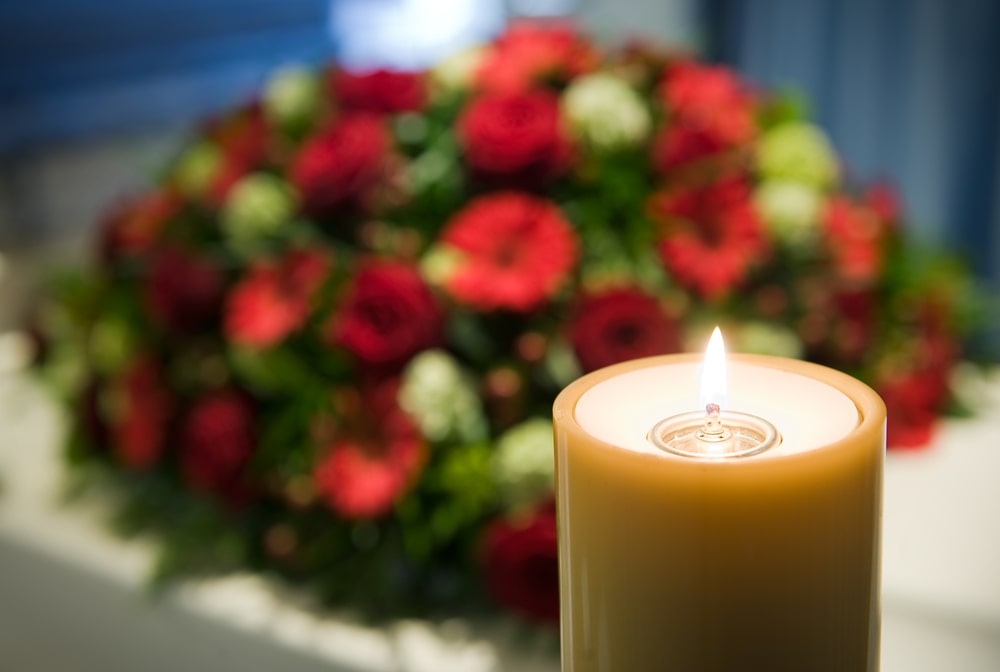Participating in a funeral as a pallbearer is a time-honored tradition and a sign of trust. It’s both an honor and a responsibility. After all, you have been asked to accompany a dearly loved person to their final resting place, which means the family trusts and values you. However, if this is your first time acting as a pallbearer, you may feel a little unsure of the dos and don’ts of pallbearer etiquette. We’ve got you covered! Let’s review 8 tips for pallbearer etiquette.
1. Understand the honor you’ve been given
Carrying the casket is a privilege that should be treated with poise, respect, and dignity. By asking you to participate, the family is showing how much they value your role in their loved one’s life. If for some reason you think you won’t be able to complete the duties of a pallbearer, don’t be afraid to turn it down. Some common reasons for not accepting the responsibility are that you are unable to attend the funeral, unable to carry the casket (the casket alone can weigh up to 500 pounds), or you’re feeling very emotional about the loss and feel unable to do it well.
2. Arrive at the expected time (don’t be late!)
Make sure to arrive at the funeral events at the expected time (or early!). This will ensure that you are present for all aspects of the funeral and give you time to talk with the family or funeral director about your pallbearer duties. While there will be six or eight pallbearers in total, it’s best for everyone to arrive on time, identify each other, and be on the same page to ensure everything runs smoothly.
3. Talk to the family or funeral director about expectations
Every funeral is different. For some funerals, you will help carry the casket from the funeral service to the funeral car and from the funeral car to the graveside service. For other services, you may be expected to carry the casket into the building, set it down for the service, and then out to the funeral car afterward. To keep things simple, take a few moments to talk to the family or the funeral director to get a good sense of what’s expected of you and where you need to be when. Sometimes, there’s a special place for pallbearers to sit during the service. Make sure to stay with the group if this is the case.
4. Dress appropriately
Unless there’s a theme for the funeral as part of the personalization, then it’s generally expected for pallbearers to wear dark and modest clothing. For men, dark suits with ties work well; for women, a dark dress or pant suit. Everyone should wear comfortable shoes to ensure easy movement and extra stability when walking over uneven ground. If you are active or retired military, you might consider wearing your uniform, but ask the family first.
5. Watch your step
Because you are sharing this responsibility with five to seven other pallbearers, make sure that you walk slowly and evenly. Stay in step with the other pallbearers, going at a steady pace. It would be terrible if someone were to stumble while carrying the casket. By taking it slow, you reduce the possibility that an accident will happen.
6. Be dependable
The last thing the grieving family needs is an absentee pallbearer, so make sure that you are dependable and responsible. If you’re unable to commit, let the family know that you are unable to participate. Once you accept, the family is counting on you to take part in a poignant and meaningful moment and help make the funeral a healing experience. Be there when they need you, do what’s expected, and everything will work out just fine.
7. Turn off or silence your phone
It’s disruptive to hear the shrill sound of a cell phone in a silent movie theater. Imagine if your phone is going off while you’re carrying the casket, and it’s extremely awkward to fumble for your phone while balancing the weight of the casket. Instead, take a few moments before the service to silence or turn off your phone out of respect for the person who has died and their family.
8. Stick around for a bit
Just as the bridal party is expected to stick around after the wedding to help with clean-up, it’s generally expected that pallbearers will stay after all services are complete to ensure there’s nothing the family needs. During this time, offer your condolences and support. Ask if there’s anything you can assist with (like taking flowers or personal items to vehicles). Once the family lets you know that they’re good, feel free to head out.
As a pallbearer, you’ve been given an opportunity to serve the family and pay your respects through a meaningful and healing action. Take it in and consider your pallbearer duties an act of love and respect. Don’t stress about your role – the family has everything planned and organized. If you have any questions at all, simply ask the family or the funeral director. You can do this!








